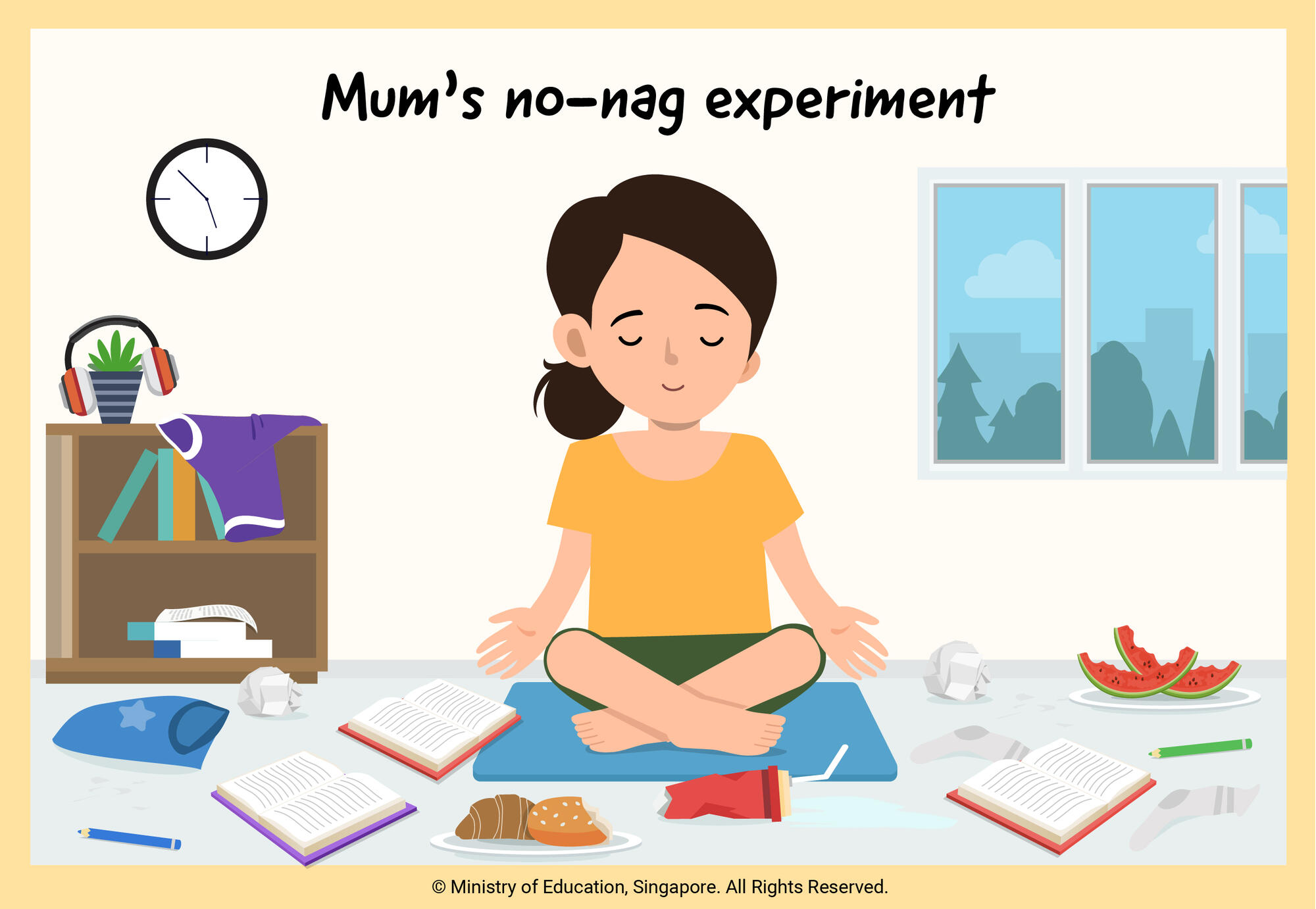A year ago, my 13-year-old brought home his report book with his first fail grade. He had always been an average student but coping with 11 subjects in secondary school (as opposed to 4 in primary) proved a challenge. For him, History proved to be his Achilles heel.
He was demoralised. I knew exactly how he was feeling as I had been there, and worse — I had repeated my O Levels.
While I understood all too well the feeling of frustration with a subject, I figured the best thing to do first would be to speak with his History teacher to see how we could help him. But even after we did that, despite revisions in place and his teacher encouraging him to approach with any questions in class, my son still struggled, and it was affecting his morale.
Soon the other subjects began to take a hit as well and his grades started to decline, even for his stronger subjects. This was all beginning to look a bit too familiar for complacency on my part. So, as a first step, I decided to share with him this vulnerable part of my school journey — something which I had never planned on doing.
Why do this? I wanted him to know that I truly knew what he was going through and hopefully, he may learn from my mistakes.
The feeling of failure
This is how my story went: When I was in Secondary 3, I took on subjects that I had scored well in during Secondary 2. I thought I could handle the subjects, but I was wrong. Additional Mathematics was easy at first, but then I came across a chapter and concept that I couldn’t grasp no matter how much I tried.
That’s when my problems started. I struggled to keep up during lessons. I tried but I couldn’t do it. As my self-confidence took a hit, my grades, even for my strong subjects, started slipping.
Some of my teachers noticed it and encouraged me to join the supplementary classes. Unfortunately, the school had only one Additional Mathematics teacher at that time and he and I never worked well together. Gradually, I lost all confidence in myself, and just gave up.
This went on till my GCE O Levels and my results were unsatisfactory. I did not do well enough to go to a Junior College or even my polytechnic choices. My parents were livid and told me I had only 3 options: to accept any course I was eligible for, get married (a joke, of course), or repeat my O Levels. I chose the last option.
Getting a second chance
Although initially hesitant to accept me back at first, my principal relented, saying he knew that I had not fulfilled my potential. That was the easy part. The hardest would be facing my juniors, who were now my classmates. To my relief, they did not judge or make fun but befriended me instead.
At first, I tried to concentrate on my weaker subjects, but I felt myself going into that downward spiral again. At this time, a classmate stepped in to explain the Additional Mathematics concepts to me, and surprisingly when she explained it, I could get it. With her help, and that of my classmates, I gave it my all. I also decided not to let my weak subjects drag me down emotionally, but focus on the subjects that I was good in.
In the end, I did well in my second O Levels attempt and my results were good enough to get into the Junior College stream I’d originally wanted. That detour of an additional year proved to be the right choice because it gave me back the confidence I needed. It also opened my eyes to the many opportunities that I had not previously been aware of. I had the chance to visit more open houses that year and was introduced to many industries. That is how I came across the Film and Media Studies course offered at Ngee Ann Polytechnic and found that it was more suited for my strengths. So instead of JC, I decided that a polytechnic route was a better choice for me.
My son’s response
After hearing my story, my son was thoughtful for a moment, then he asked me how I felt seeing my peers move on while I stayed on another year or whether my friends thought less of me because of that. I replied that I did feel embarrassed about repeating but realised that those who were truly my friends didn’t judge me and instead encouraged me. Plus, I had the support from my teachers and classmates, and I’m grateful my principal believed in me enough to give me another chance.
I told him that I understood how discouraging it can be to try so hard, but not achieve the grades he wanted. And I told him what I wished someone had told me then: Do not let your weakness drag you down — focus on your strengths instead. I explained that after having learnt it for myself during my school life, it also applied to when I started working. It was better to know what you are strong at rather than try to be a jack of all trades.
For my son, I advised him to continue to focus on doing well in subjects he was good at — Mathematics and Science — while making an effort to improve in History. We both agreed that the Science stream would be more suitable for him and thus he should set his goal on that. Lastly, I encouraged him to just do his best as that’s all that mattered, and to never give up.
Perseverance pays off
He went into Secondary 2 with a different attitude and I watched him work on his inference skills through endless History essay practices, while he focused on improving his Mathematics and Science grades. Though he tried hard, his history grade did not improve. It was a sensitive point and I had to remind the grandparents not to compare his grades with his cousins or say anything discouraging as each child has his own strengths and weaknesses, and each learns at their own pace.
When he came home with his report book at the end of that year, his efforts had not been wasted. He did well for his stronger subjects, and even managed a borderline pass for History. His grades got him into the Science stream and the subject combo he’d wanted. I was so happy for him, and mostly proud of how he had taken my advice and worked hard to achieve what he wanted.
I do believe that knowing his mother understood him was a crucial factor in how he handled the setback. Thanks to this incident, I am now more open to sharing the experiences I’ve gone through in my youth, both positive and negative. Our children may think we are perfect, but hearing our stories helps them know that mistakes are a part of growing up and what’s important is how we learn from them and overcome hurdles.
On my part, I remind myself to understand my child’s capability and not expect unrealistic results. I try to focus on motivating him to achieve his goals, and most importantly, be there for him if he fails, because that’s when he’ll need my encouragement the most.
I know. I have been there.





.jpg)
